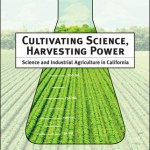knowledge
I'm on my way to a taping of the Humanist Views with Host Scott Lohman. I do these now and then and have done so since I first moved to Minnesota back when it was still cold here. We'll be talking about science knowledge, and why basic science knowledge is important. We'll also be talking about how to go about evaluating science stories you encounter in the news, or more likely, on your Facebook feed or in other social media.
Pursuant to this, I wrote a blog post that talks about how science stories go out to the general public. I also report on a request I sent out a few days ago to my…
"Education is an admirable thing, but it is well to remember from time to time that nothing worth knowing can be taught." -Oscar Wilde
As many of you know, last weekend I launched a suggestion box here on the site, and I've been overwhelmed by the response: about fifty of you have sent something in to me in the first less-than-a-week of this alone!
Image credit: Thao Nelson of http://mycredo.wordpress.com/.
So, let's start answering them! There are more than enough excellent questions and suggestions to keep me busy for a long time, but with the new academic year starting up, one of…
A news story in ScienceNOW this week describes how City University of New York is planning to rearrange its "General Education" requirements so that non-majors who take science don't have to take lab courses anymore. Scientists at CUNY are, predictably, annoyed and upset. Even non-majors should get to muck around in lab with their own hands a bit before going off to whatever other majors and interests they have.
Here at LSU we've been discussing almost the Exact Same Issue in the Honors College for the past few weeks and coming to the Exact Opposite Conclusion to CUNY. We are re-designing…
I had the chance to interview Rebecca Solnit for The Believer. It's on shelves now, in their September issue. They've also put the full text of it on-line at their website. (Here it is.)
To quote the interview's intro, Solnit is the author of twelve books. She is a journalist, essayist, environmentalist, historian, and art critic; she is a contributing editor to Harper's, a columnist for Orion, and a regular contributor to Tomdispatch.com and The Nation; she's also written for, among other publications, the L.A. Times, the San Francisco Chronicle, and the London Review of Books.
She talks…
To me, and I suspect many readers, the quest for information can be an intensely rewarding experience. Discovering a previously elusive fact or soaking up a finely crafted argument can be as pleasurable as eating a fine meal when hungry or dousing a thirst with drink. This isn't just a fanciful analogy - a new study suggests that the same neurons that process the primitive physical rewards of food and water also signal the more abstract mental rewards of information.
Humans generally don't like being held in suspense when a big prize is on the horizon. If we get wind of a raise or a new job…
Pt. I | Pt. 2 | Pt. 3 | Pt. 4
---
Part 2 with Christopher Henke, discussing his book Cultivating Science, Harvesting Power, follows below. All entries in the author-meets-blogger series can be found here.
WF: Now I can get back to the interpretive framework and your own concepts when understanding your empirical evidence. "Repair" is a guiding framework for you here, a way of approaching, understanding, and explaining your research findings. So what do you mean, repair?
CH: We use the term repair in everyday life to describe the process of fixing things---sociologists use repair as a…
The World's Fair is pleased to offer the following discussion about Cultivating Science, Harvesting Power: Science and Industrial Agriculture in California (MIT Press, 2008), with its author Christopher Henke. Henke is an assistant professor of sociology at Colgate University, an STS scholar, and a contributor to Colgate's environmental studies program.
Cultivating Science, Harvesting Power, says its publisher, "explores the ways that science helped build the Salinas Valley and California's broader farm industry." In doing so, Henke provides an account of "how agricultural scientists and…
On Tuesday, I wrote a short essay on the rightful place of science in our society. As part of it, I argued that scientific knowledge is distinct from the scientific method - the latter gives people the tools with which to acquire the former. I also briefly argued that modern science education (at least in the UK) focuses too much on the knowledge and too little on the method. It is so blindsided by checklists of facts that it fails to instil the inquisitiveness, scepticism, critical thinking and respect for evidence that good science entails. Simply inhaling pieces of information won't get…


